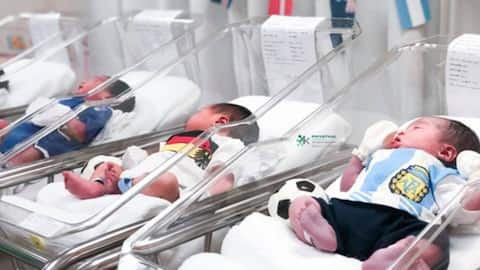This scientist wanted to make designer babies for ultra-rich
What's the story
In 2018, a Chinese scientist by the name of He Jiankui sent shockwaves across the scientific community by claiming to have created the world's first gene-edited babies. His action drew major criticism from international governments, but as it turns out, the man wasn't ready to stop there. He had planned much bigger and scarier things with the CRISPR gene-editing technology! Here's all about them.
Plan
Plan to create genetically-enhanced babies
As Jiankui continues to face house arrest and criminal charges for his illegal work, an investigation from the Science magazine has revealed that the scientist planned to scale up the effort of genetically-modified babies. Specifically, he wanted to start a company that would use the CRISPR tech to engineer the genes of babies and make them immune to HIV, heart attacks, and other diseases.
Discussions
He had talks with potential advisors, partners
Though the wicked plan never saw the light of the day, the investigation indicates the disgraced scientist had discussions with potential advisors, investors, and partners for the business. Jiankui hoped to set up a gene-modification clinic in China or Thailand, giving wealthy and elite customers from different parts of the world a chance to bring their children for the so-called 'genetic enhancement'.
Concern
Interest in his plan raises major concerns
Going by the report, Jiankui was able to meet several investors, entrepreneurs, and advisors who were apparently intrigued by the idea of setting up a 'designer baby destination' for genetic hacking of children. This, in itself, shows that a number of people are still willing to cross the ethical boundaries of science just to enhance their kids genetically.
Announcement
However, the plan fell apart when he announced gene-modified babies
Jiankui's plan fell apart in November when he announced modifying the genes of twin girls in a bid to make them immune to HIV. Post this, he drew flak from the international scientific community, the Chinese government and was put on house arrest. Naturally, the people who expressed interest in his plan also backed off, distancing themselves from the idea.
